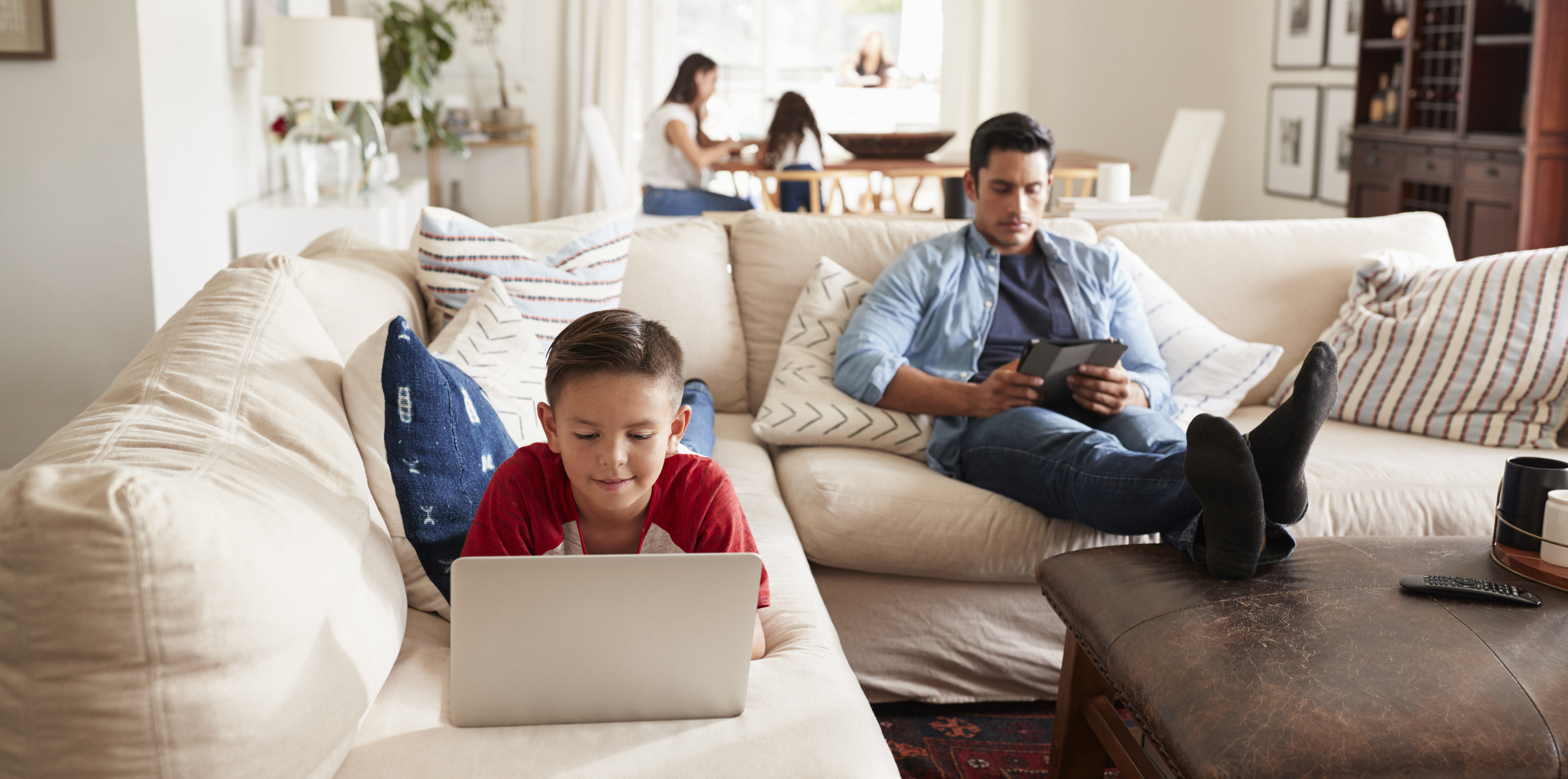For better and worse, the days when parents could shield their kids from the effects of technology are long gone. Instead, technology plays an indispensable and unavoidable role in all our lives, adults and kids alike, and our children need to know how to use it to support their mental and physical health.
Some parents felt that the risks associated with smartphones, social media, and the internet outweighed the rewards just a few years ago, and they tried to keep the technology out of their kids’ hands entirely. Since then, research has shown that technology can benefit kids. Tech solutions can improve children’s educational opportunities and raise their awareness of the world around them. When used correctly, technology might even bolster kids’ mental health by fostering social interaction and giving at-risk children access to support systems they wouldn’t be able to find otherwise.
Although it’s becoming increasingly clear that kids should use technology, it’s also still clear that tech media carries risks. For example, spending too much time with tech media and little time doing physical activities puts kids at risk of physical problems such as obesity. And even though technology use might benefit mental health when used correctly, misuse can exacerbate mental health-related issues.
So parents are in a potentially confusing situation. How do you encourage healthy technology use while at the same time preventing its harmful effects? The American Academy of Pediatrics (AAP) has published a policy statement to help guide parents in their tech-related decision-making.
Develop a Family Media Use Plan
The AAP emphasizes the importance of a technology plan consistently followed by all family members, including parents. Key points include:
- Establishing limits, including which types of media may be used and when
- Keeping devices out of bedrooms and not using media within an hour of bedtime
- Not allowing the use of entertainment media while doing homework
- Designating media-free times and using those times for constructive family activities
- Encouraging physical exercise and good sleep habits
- Making sure that other caregivers, such as babysitters and grandparents, also follow the plan
Share Media Experiences with Your Child
The AAP guidelines also encourage parents and caregivers to participate in their kids’ tech media use actively. Suggestions for being part of your kids’ tech life include:
- Watch media with your kids and talk about what you see.
- Openly discuss the potential dangers of tech media, including bullying, sexual abuse, online predators, and financial risks. Ensure children know how to be safe from predatory behavior and invasions of their privacy. Make sure, also, that they know how to be responsible tech users, including treating others with respect and kindness.
- Encourage children to have contact with other trusted adults, such as family members, through social media so that they have a source of adult support in addition to their parents.
These guidelines are just the beginning of an approach that may need to shift as the technological world changes around us. But with a hands-on and vigilant approach to media use, we can keep our children healthy and safe.

Helpful Resources
When seeking additional resources for helping your child use technology in a healthy way, refer to the United Brain Association website. We share information about over 250 brain and mental health-related issues, including causes, diagnosis, treatment, and current research topics. In addition, our community members have shared stories about their experiences and those of their children, providing additional insight into health and well-being.
If you’d like to receive updates, news, scheduled events, or more information about our ongoing donor-funded research projects, sign up for our email newsletter by clicking here. Together we can find a cure for brain disorders and mental-health-related issues.
You Are Not Alone
For you or a loved one to be diagnosed with a brain or mental health-related illness or disorder is overwhelming, and leads to a quest for support and answers to important questions. UBA has built a safe, caring and compassionate community for you to share your journey, connect with others in similar situations, learn about breakthroughs, and to simply find comfort.

Make a Donation, Make a Difference
We have a close relationship with researchers working on an array of brain and mental health-related issues and disorders. We keep abreast with cutting-edge research projects and fund those with the greatest insight and promise. Please donate generously today; help make a difference for your loved ones, now and in their future.
The United Brain Association – No Mind Left Behind




